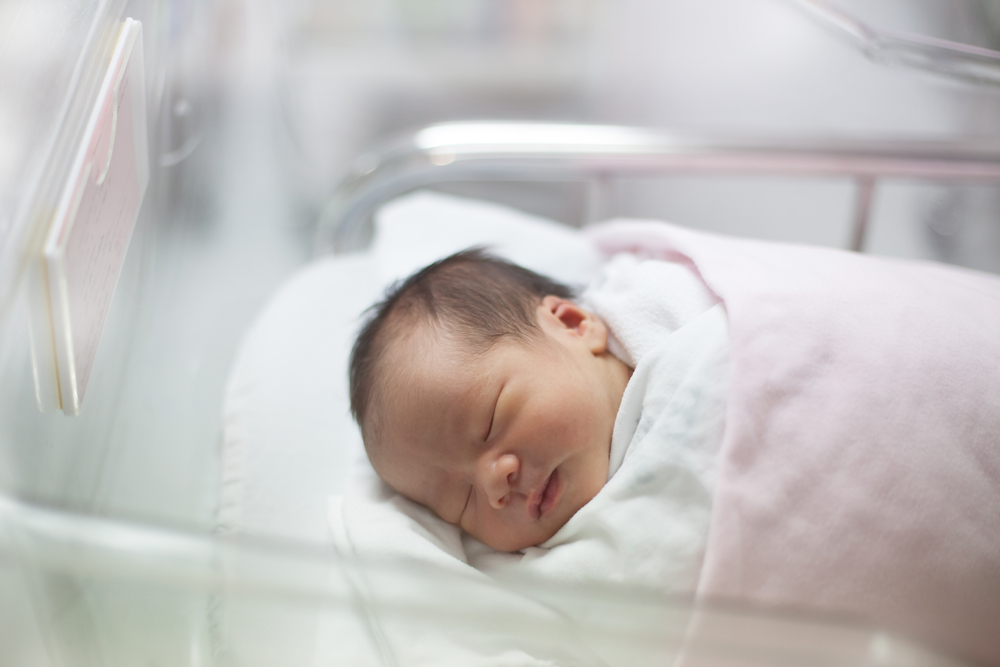Hello World! Brain Develops Senses at Birth

Get the world’s most fascinating discoveries delivered straight to your inbox.
You are now subscribed
Your newsletter sign-up was successful
Want to add more newsletters?

Delivered Daily
Daily Newsletter
Sign up for the latest discoveries, groundbreaking research and fascinating breakthroughs that impact you and the wider world direct to your inbox.

Once a week
Life's Little Mysteries
Feed your curiosity with an exclusive mystery every week, solved with science and delivered direct to your inbox before it's seen anywhere else.

Once a week
How It Works
Sign up to our free science & technology newsletter for your weekly fix of fascinating articles, quick quizzes, amazing images, and more

Delivered daily
Space.com Newsletter
Breaking space news, the latest updates on rocket launches, skywatching events and more!

Once a month
Watch This Space
Sign up to our monthly entertainment newsletter to keep up with all our coverage of the latest sci-fi and space movies, tv shows, games and books.

Once a week
Night Sky This Week
Discover this week's must-see night sky events, moon phases, and stunning astrophotos. Sign up for our skywatching newsletter and explore the universe with us!
Join the club
Get full access to premium articles, exclusive features and a growing list of member rewards.
The mere act of being born triggers development of the brain's sensory system, new research shows.
In a mouse study, the birthing process caused levels of a brain chemical called serotonin to drop, triggering the formation of the brain's sensory maps that organize input from vision, touch and other senses. The findings could help scientists understand healthy human brain development and mental illness, the researchers say.
"Our results clearly demonstrate that birth has active roles in brain formation and maturation," study leader Hiroshi Kawasaki of Kanazawa University in Japan said in a statement. [11 Surprising Facts About a Baby's Brain]
The brains of humans, mice and other mammals are equipped with maps for processing different types of sensory information. For example, the barrel cortex in rodents represents tactile information from the whiskers, and the layout of the neurons in that map mirrors the layout of whiskers on the animal's face.
Previously, researchers found that the brain chemical serotonin, the target of many depression medications, also plays a role in the development of sensory maps. But serotonin's exact involvement was not well understood.
Now, Kawasaki and his team have found the birthing process in mice causes a dip in serotonin in their brains, which triggers new neural wiring in the barrel cortex and the lateral geniculate nucleus (LGN), a brain region involved in visual processing. The researchers ruled out several other possible causes of the barrel cortex formation, such as increased tactile input after birth, or the release of the pups from their mamas (rather than the actual birthing process).
When the researchers gave the pregnant mice drugs to induce an early birth or lower their serotonin levels, circuits in the barrel cortex and LGN in the resulting newborn mice formed faster. But when they gave the mice a drug that boosted serotonin signaling, those circuits didn't form.
Get the world’s most fascinating discoveries delivered straight to your inbox.
The findings, detailed yesterday (Oct. 14) in the journal Developmental Cell, suggest that reducing serotonin levels is key to healthy sensory map development.
Mental disorders often involve serotonin, so abnormal births and the effects on serotonin signaling might increase the risk of psychiatric illness, the researchers say. Once scientists understand the full effects of serotonin during birth, they may be able to develop therapies to reduce the risk of these illnesses, Kawasaki said.
Follow Tanya Lewis on Twitter and Google+. Follow us @livescience, Facebook & Google+. Original article on LiveScience.

 Live Science Plus
Live Science Plus










